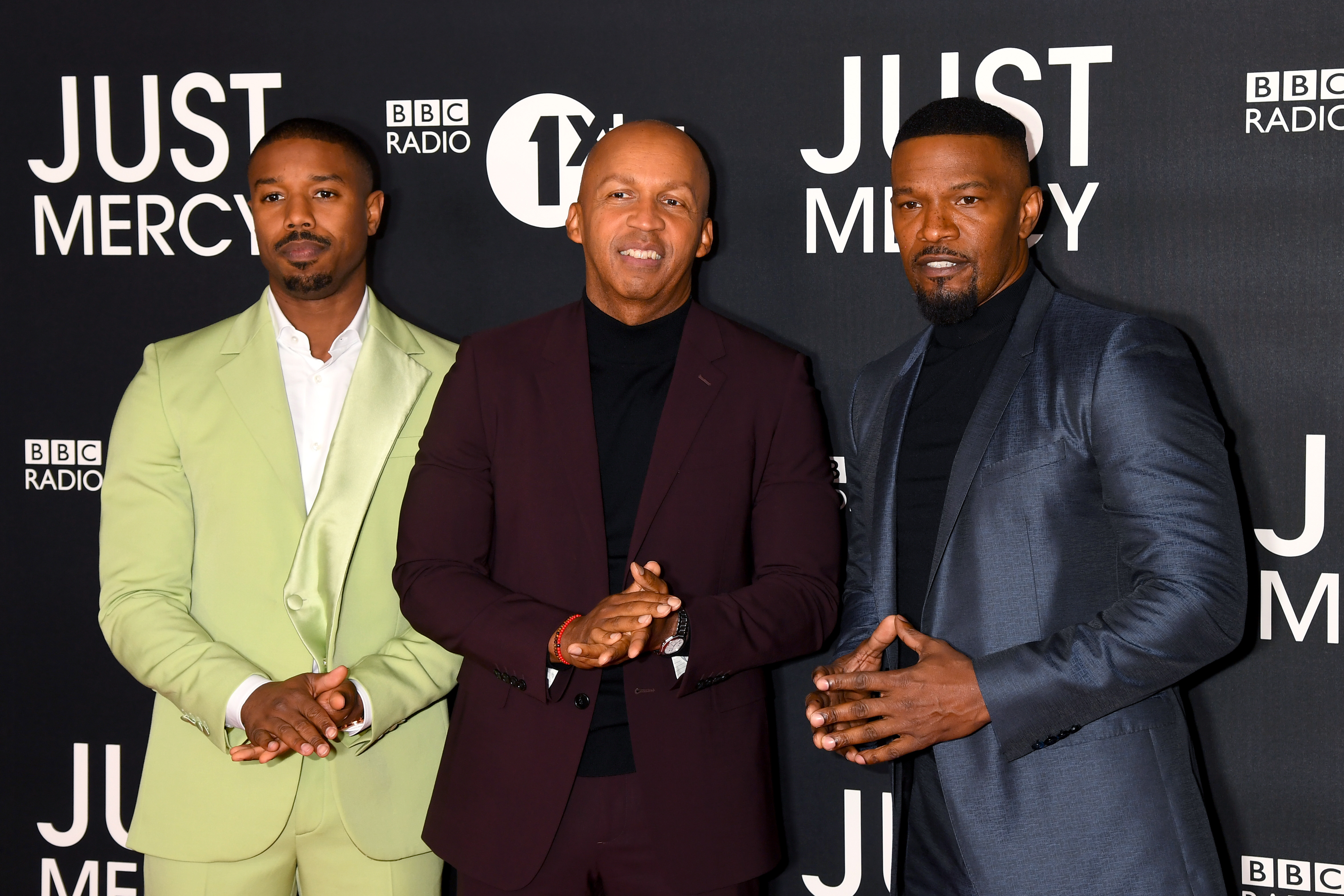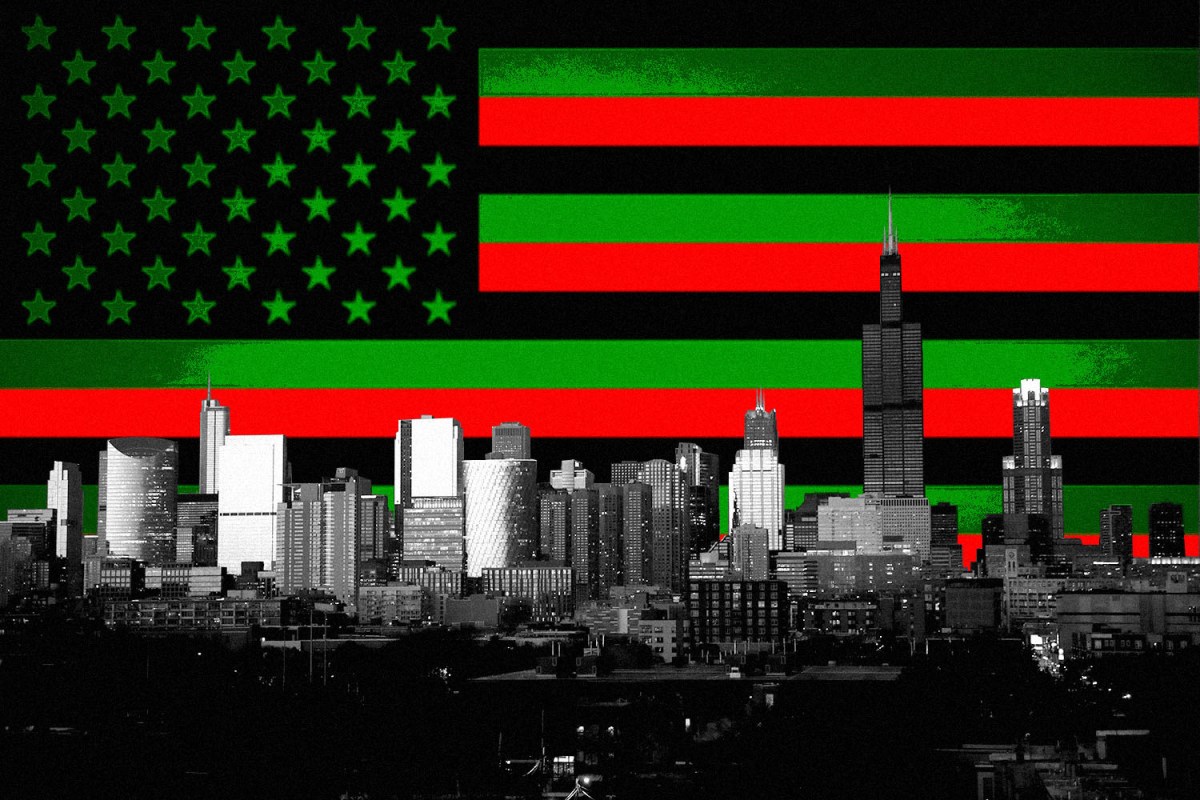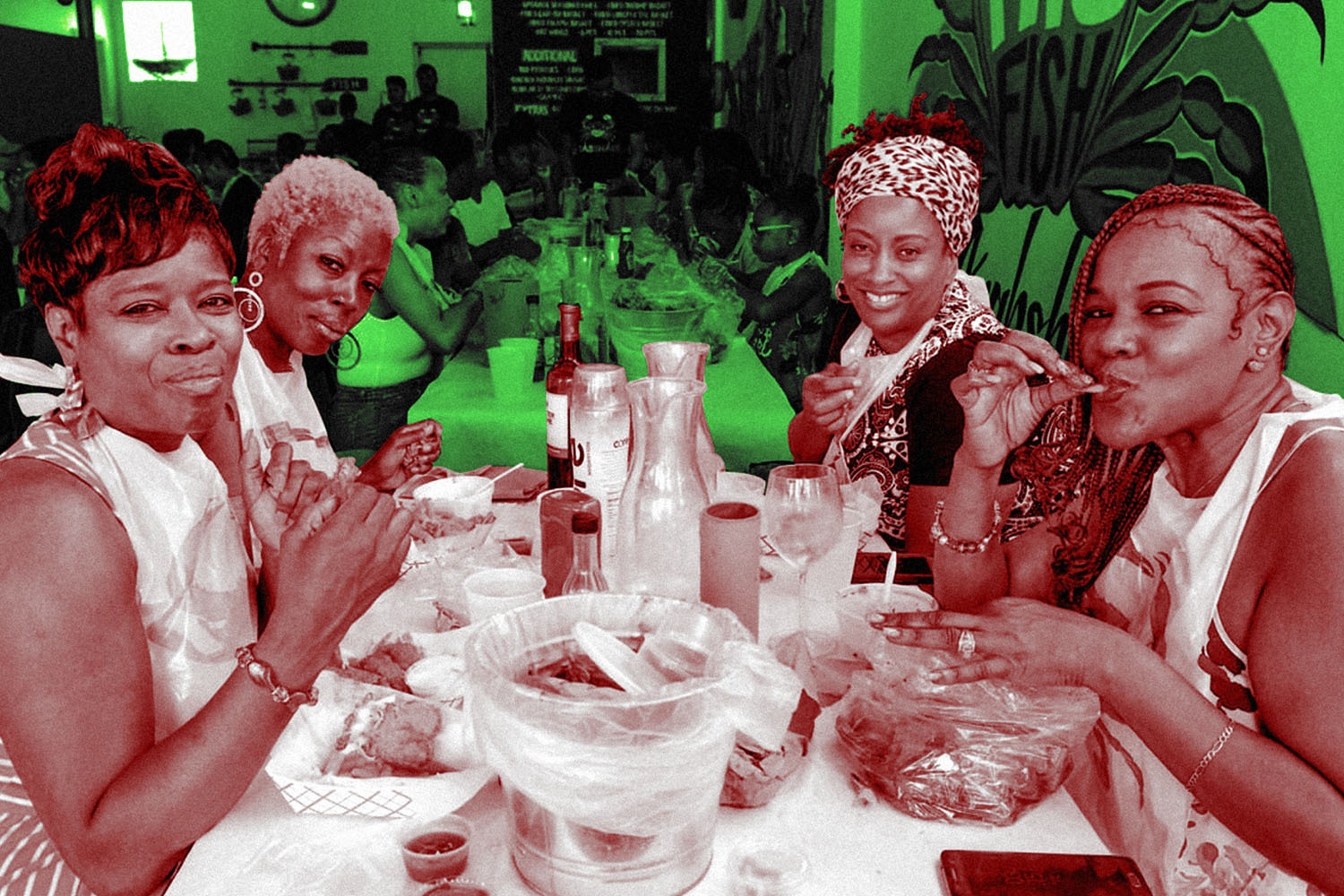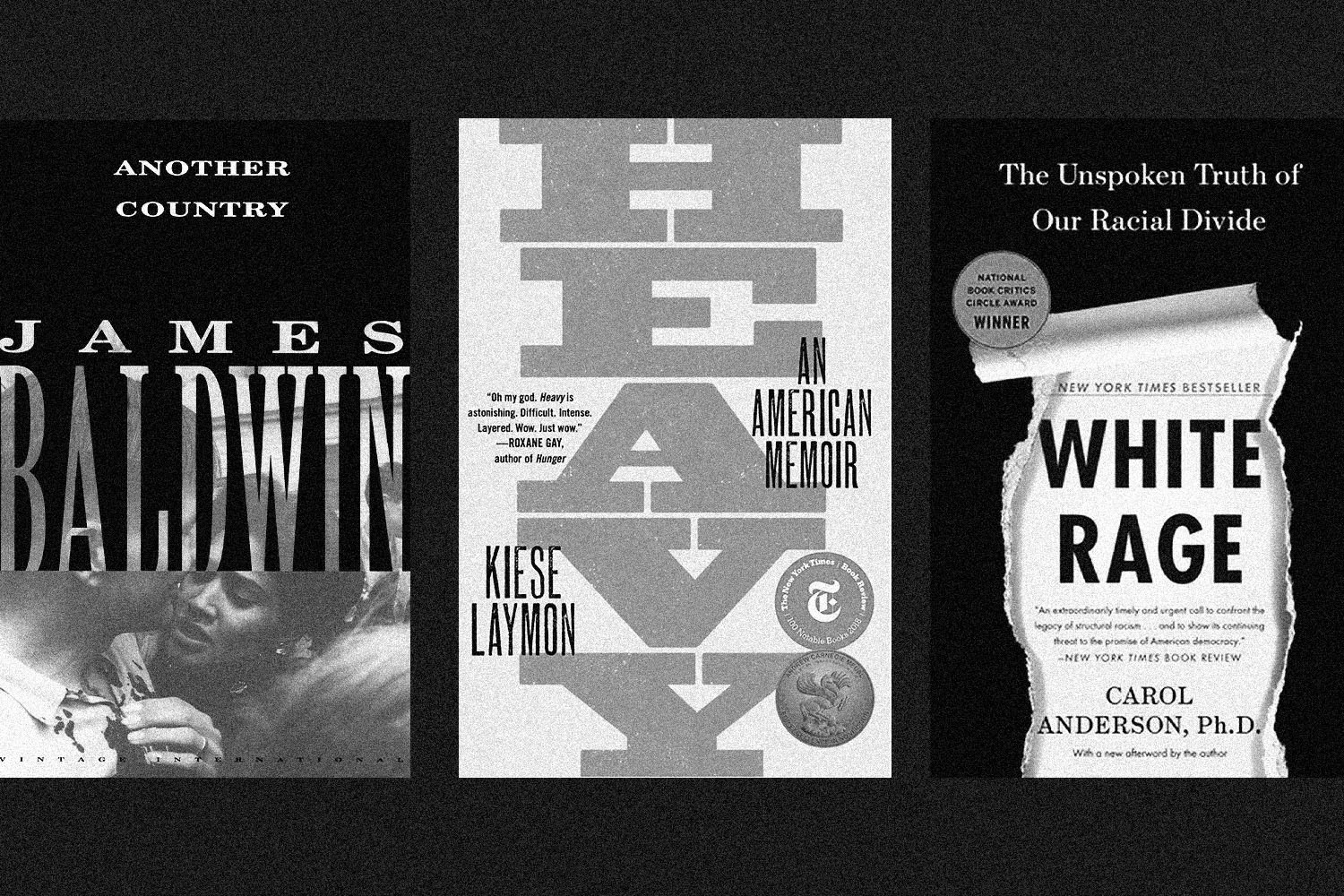Racism is everywhere these days, figuratively and literally. Between a racist virus, a racist depression and several public murders of Black people, systemic oppression has been impossible to ignore.
Writing for the LA Times, Kareem Abdul-Jabaar described racism in America as dust in the air. “It seems invisible — even if you’re choking on it — until you let the sun in. Then you see it’s everywhere. As long as we keep shining that light, we have a chance of cleaning it wherever it lands. But we have to stay vigilant, because it’s always still in the air.”
Liz Dozier, Founder of Chicago Beyond, likens it to “when you pull a loose thread on a sweater and before you know it half the sweater is gone — that’s the moment we are in right now,” she says.
In Chicago, unmasking the breadth of systemic racism shouldn’t come as a shock. When I talked to eight city business and thought leaders in January, it was cited as the top challenge facing the city over the next decade. Though they came from a variety of industries and backgrounds, seven of the eight specifically called out systemic racism and racial inequality as the biggest issues Chicago needs to address in the 2020s.
The good news? The city has a vast network of organizations already doing the work of dismantling our dangerously biased systems. The great news? While racism and systemic oppression is very complex, we’ve made it quite simple for you to take positive, immediate action.
Below is a long but not comprehensive list of what you can do personally, at your company and in your state at large to be antiracist.
First, a quick precursor on the term antiracism. In his best-selling book How to Be An Antiracist, Ibram X. Kendi classifies racist as a descriptor, not a pejorative. Unlike the term bigot, saying someone or something is racist does not imply hatred; it simply means a policy, practice or ponderance supports the discrimination and marginalization of a minority group.
“The good news is that racist and antiracist are not fixed identities. We can be a racist one minute and an antiracist the next,” he writes. “Those people who are striving to be antiracist are the people who are admitting their racism. What that means is what people should be looking for, and valuing, is the person who is no longer in denial about their addiction.”
As Kendi explained to Dax Shephard on a recent episode of Armchair Expert, “when you are truly striving to become antiracist it’s almost like you are trying to overcome an addiction, you’re always taking it a day at a time. You never become an anti-racist. You know that every moment, every day, you have to think about your actions.”
Ready to get to work?
What You Can Do as an Individual
Complete the internal work. Before you move into action mode, take time to acknowledge your privilege — your experiences with race and bias — and educate yourself. That’s where the real change will come from. “People are trying to dismantle racism from the top down, but readers: you can dismantle it from the bottom up. Start with educating yourselves, your children and your family. It is critical work,” Dozier says, adding “it looks different for white and non-white people, but believe me, [it’s] everyone’s problem.” If you haven’t already heard, do not go to the Black people in your life and ask them to educate you. Do the work and research yourself. Here’s a selection of 20 books by Black writers that will help you better understand the structure and history that help perpetuate racism in America.
Meet your neighbor. As Michelle Obama says, “I’ve learned that it’s harder to hate up close.” It’s time to make a personal connection to the Black community in Chicago. Start by supporting a black-owned businesses: here’s a list of 100 across the city, running the gamut from restaurants to apparel to home goods. Then, find your map neighbor. Tonika Johnson founded the Folded Map Project to connect residents who live at corresponding addresses on the North and South sides of Chicago. If you fold a map at the center, the mirroring addresses create “map twins”; for example: someone living at the 6900 block of North Ashland in Rogers Park is a map twin with the someone living at the 6900 block of South Ashland in West Englewood. It’s a personal way to open dialogue and examine how segregation impacts our city. “I believe that it takes individual one-on-one interaction for us to begin to desegregate our city, because clearly the history of housing policy won’t get us there,” Johnson writes. By connecting map twins, she is facilitating interaction among communities that have traditionally seemed off limits to people on either side of the map. Reach out on her website if you’re interested in participating in a map twin pairing.
Volunteer your professional expertise. You don’t need to pick up a new skill to help someone; give them the skills you already have. Instead of signing up for a mission trip or house-building experience, consider offering your specific professional skill set for free — which can make a huge difference for a not-for-profit organization (NFPO). “What are you passionate about and how can you lend that passion to others?” asks Jahmal Cole, founder of My Block, My Hood, My City. The community activist, whose catchphrase urges all Chicagoans to ask themselves, “What’s something simple I can do that’ll have a positive impact on my block?”, offers some specific ideas for action: “If you work in IT, reach out to a social-justice organization and see if you can help them on their website. If you do consulting, deliver a three year strategic plan to a not-for-profit. If you’re in construction, offer your services for free to one of the businesses that have been looted. When I say something simple, I don’t mean it should be easy.” Find an organization you like (maybe one you’ve already donated money to) and offer your specific services. If they are all set with what you can contribute, ask them for a recommendation of another NFPO that could use the help.
Participate in mentoring programs. Atlanta rapper and activist Killer Mike espoused the benefits of mentoring during a visit on The Late Night Show with Stephen Colbert in 2016. He implored, “Find a child who is marginal or doing exceptional in school who’s a minority, who doesn’t look like you, not of the same religion, not of the same background — help that child matriculate into college … Teach them the path you were taught, to help them become a successful human being. What you’re going to get out of that experience is another human being that’s taking full advantage of an educational system that can help them within their community, but more than that, it grows you as a human being to have empathy … for someone who doesn’t look like you and is culturally not from your background.” Locally, OneGoal Chicago uses a three-year model to pair high-school students with mentors who support the students from secondary school through their first year of college.
Donate money to fund antiracism work. It is no accident this is last on the list of personal to-dos. Yes, you should absolutely give money to organizations fighting for social justice, but to be antiracist, you can’t just give money. “It is my opinion that — especially as white people — we can’t be lulled into thinking we can buy or donate our way out of systemic racism,” says Christina Hachikian, Executive Director, Rustandy Center for Social Sector Innovation at the University of Chicago Booth School of Business. “Yes, we need to donate to organizations working on ending systemic racism and police brutality. And yes, we need [to take] our business to Black and Latinx accountants, lawyers and other professionals, among other actions. But what it will take to actually move the needle as a society on ending racial discrimination is internal work.”
That said, Chicago has many effective NFPO fighting racism and systemic oppression:
- Invisible Institute: Provides data transparency about incidents of police misconduct. Their Citizens Police Data Project is a tool that allows citizens to hold police accountable for their actions.
- Chicago Community Bond Fund (CCBF): Pays bond for people charged with crimes in Cook County, releasing presumed innocent defendants until their trial.
- Lawndale Christian Legal Center: Provides holistic social and legal services to youth through their North Lawndale restorative justice program.
- Dovetail Project: Gives young Black fathers (ages 17 to 24) the skills and support they need to be better fathers for their children and better men in their communities through a 12-week parenting program.
- Storycatcher Theater: Works with youth in the juvenile justice system to repair trauma via artistic expression, sharing their stories through musical theater.
- Residents Association of Greater Englewood (R.A.G.E): Founded by residents in the South side neighborhood often noted for its violence, R.A.G.E. collaborates on action-based solutions to highlight the resiliency and positivity of the community.
- Rebuild Chicago: Artist-led organization revitalizing South side neighborhoods and rebuilding their cultural foundations.
And three national organizations that are equally commendable:
- Know Your Rights Camp: Colin Kapernick’s traveling education camps aim to advance liberation and well-being for Black and Brown communities through self-empowerment and education.
- Data 4 Black Lives: A movement of activists, organizers and mathematicians committed to the mission of using data science to create concrete and measurable change in the lives of Black people.
- National Fund Bail Network: A combination of more than 60 bail and bond funds across the country. Check bail funds by state, or specific category like protest bail funds.

What Your Company Can Do
Use blind hiring practices. Equity statements have been coming from every large organization, but without action, it’s just lip service. “I personally have just started deleting them, I don’t even read them anymore,” says Dozier. “I want to know what they are specifically doing and where their money goes.” A clear and easy request you can make of your company is to employ blind hiring practices, especially during the early rounds of resume-culling. Research shows over and over that unconscious bias continually discriminates against minorities and women, with Black women suffering the most. Blind hiring techniques remove demographic information from a candidate — things like name, gender, age, school they attended and even education level — so the focus can be on the required skill set. Blind hiring helps with intersectionality (social categorizations that overlap: e.g., Black, disabled, gay, female) and promotes an actually diverse workplace, says Hachikian. If your HR department brushed you off citing the use of algorithms, Hachikian warns to push back on that. “Many companies have moved to algorithmic hiring and algorithms are designed by people who themselves have bias, so the algorithms get that same bias. We have to be careful about those processes,” she says.
Require bias training and education for managers. Bias training is crucial, but training alone won’t solve systemic racism. As Dozier points out, “our whole society is set up to affirm what we already have, it won’t change in one training, it has to be ongoing.” Dolly Chugh is an award-winning social psychologist at the New York University Stern School of Business, and her research-backed book, The Person You Mean To Be: How Good People Fight Bias, is full of tools about how to stand up for others and change your behavior every day.
Review promotion practices and how people move up. Hachikian points to two effective bias busters companies can start immediately. First, studies show if people have to justify their promotion decisions out loud to a colleague, they tend to do better with diversity and are more fair. Second, pinpoint where Black, LatinX and female employees drop off in your organization’s corporate ladder. Hachikian says, “see what the system is doing and intervene at that specific point — be a little more surgical about it.”
Update your background-check process. “There’s a lot of bias that can prevent opportunities from people who really need them,” says Carlton Mayers, II, Senior Policy Manager for Criminal Justice Reform at Heartland Alliance. His team is working on a bill for Illinois — Employee Background Fairness Act (HB4837 & SB3194) — that would create standards for private employers who consider criminal history information when hiring. Their recommendation for companies is twofold: First, disregard non-convictions (things like arrest records) when the defendant was not found guilty in court and juvenile records. Second, when reviewing an applicant who does have a criminal conviction on their record, apply an individualized assessment. “Things like rehabilitative work should be considered. Also, review if their crime should be preventative of the specific work,” says Mayers. For instance, if someone had a fraud conviction but will be operating a forklift, that conviction shouldn’t preclude them from the labor job. The goal is to increase employment opportunities for people who have been in the criminal legal system, but have paid their debt and can still offer a lot of value to companies and society at large.

Hire people with criminal records. Chasda Martin, Director of Programs for READI Chicago points out, “being born into the wrong zip code can change your life forever.” Her program works with five Chicago neighborhoods where residents are most at risk of gun-violence involvement and provides employment and healing opportunities as a way to break the cycle. This is a particularly at-risk group right now, as data shows 27 percent of formerly incarcerated people were unemployed, a rate higher than the national unemployment rate at its peak during the Great Depression. That was also before the COVID-19 pandemic. READI offers paid transitional jobs, cognitive behavioral therapy and support services to their participants. With their partner companies, READI creates viable opportunities for this population through paid work, and reassurance to companies nervous about hiring people with criminal records. “You heal through relationships,” says Kimeco Roberson, Community Project Manager at READI Chicago. “If you want to hire people with barriers, or open your hiring practices to those who may have a barrier or a perceived background, you have to understand how to work with them.” Companies that have worked with READI participants include the Greater Chicago Food Depository, City Colleges of Chicago and Revolution Workshop.
What Your Vote Can Do
“There were no criminal-justice reforms passed in Illinois this last session,” says Mayers. However, it’s not for a lack of trying. After the session was cut short due to COVID-19, social justice advocates are preparing their dockets for 20201. Here’s a round up of some of the antiracist legislation you should be aware of. Pick one or all of them and start contacting your reps via phone and email.
End money bonds. In America’s justice system, defendants are innocent until proven guilty, however, they have to pay bail to get out of jail ahead of their trial. Racial and wealth equity come to a head on this point. “Twenty-five percent of people in Cook County are Black, but 75 percent of people in Cook County jail are Black,” says Sharlyn Grace, Executive Director of the Chicago Community Bond Fund (CCBF). Her organization pays bond for people charged with crimes in Cook County, and if you think that’s a small group, think again. People in pretrial detention (aka unconvicted defendants) now make up more than two-thirds of America’s jail population. (Watch the Netflix documentary 13th for critical context on this.) CCBF says the removal of pretrial money bails is a critical aspect of racial justice and their statewide network is pushing for a bill in 2021 to eliminate money bonds in the state.
Increase public housing access. Bill HB206 creates a standard screening process for public housing authorities that would be used statewide and provides more housing opportunities for people with criminal records. Currently, there are over 100 public housing agencies in Illinois, and each has their own requirements. The lack of a unified system causes problems for people that can only afford public housing and have a criminal record. For example, a person convicted of a misdemeanor (let’s say shoplifting theft of property worth no more than $500) can get public housing from the Housing Authority of Cook County, but if they move to Richland County, the same misdemeanor can constitute a permanent ban from their public housing. “In general, 3.3 million adults alive today have been arrested or convicted of a crime in Illinois since the advent of mass incarceration in 1979.” says Mayers.
End unnecessary background checks on college applications. Education and wealth inequity bars many Black students from attending elite colleges, and banning students with a criminal background further targets the number of Black collegiates. Illinois bill SB3517 removes the checkbox on college applications asking if applicants have a criminal history. Currently, background checks get triggered by that singular box on the application. This bill argues that background checks should only be completed after a student has been accepted and only if that individual wants to participate in campus activities and live in on-campus housing. Removing the box increases opportunities for people who have been involved in the criminal legal system to attend college.

End permanent punishments. The Equal Justice Initiative — dramatized by Michael B. Jordan and Jamie Foxx in Just Mercy — categorizes incarceration as a permanent punishment for many Americans. “Loss of employment and housing, threatened immigration status, and disqualification from welfare benefits, student loans, and certain licenses often condemn formerly incarcerated people and their families to lifelong poverty.” Heartland Alliance’s criminal reform agenda is called Fully Free and aims to replace these laws with laws that encourage stability. “Permanent punishments are laws that restrict individuals from having access to opportunities to have a stable life, to get back on their feet, to have a fair chance,” says Mayers.
Create antiracist COVID-19 relief. Due to systemic racism, Black institutions and businesses have historically been at a disadvantage to non-Black competitors; following COVID’s impact on the economy, “the situation is even more dire,” says Mahers. As the state begins to reopen and focuses on recovery, support relief initiatives that serve this population specifically. That’s antiracism in its simplest form.
Vote YES on H.R. 7085. A federal bill was introduced to the United States Congress on May 30 that would repeal the Qualified Immunity Act. Applied to all government officials, qualified immunity has gained attention since police officers fit under its umbrella. Under qualified immunity, “government officials can’t be sued for violating constitutional rights unless their actions transgress ‘clearly established’ law.” Essentially, it’s a way illegal police brutality has skirted legal retribution by languishing in the specifics of a case like exact location or day of the week. With qualified immunity gone, it’d be easier to prosecute cops who violate civil rights. Not local to Illinois, but still voted on by your congressperson, learn more about qualified immunity here, and call your congressperson or write an email showing support of this bill.
This article was featured in the InsideHook Chicago newsletter. Sign up now for more from the Windy City.






















